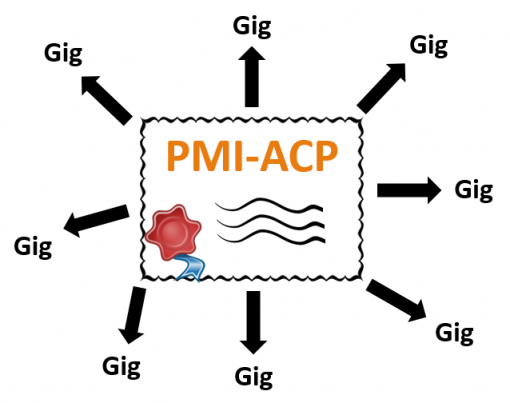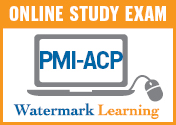 Considering the success and popularity of agile, today’s project professionals, including project managers, business analysts, team members, and even administrators, are wise to earn their PMI Agile Certified Practitioner (PMI-ACP®). Formalizing your knowledge and experience through certification contributes to your professional growth and gives you a leg up in the gig or on-demand economy in which nearly half of the US workforce is now working.
Considering the success and popularity of agile, today’s project professionals, including project managers, business analysts, team members, and even administrators, are wise to earn their PMI Agile Certified Practitioner (PMI-ACP®). Formalizing your knowledge and experience through certification contributes to your professional growth and gives you a leg up in the gig or on-demand economy in which nearly half of the US workforce is now working.
Consider that the PMI-ACP is the third most popular PMI certification behind the PMP and CAPM by a considerable margin. And its popularity continues to grow rapidly. The rate of growth from 2016-2017 was 35%, and the number of ACPs has more than doubled in the last two years.
Clearly, the momentum agile has generated in the last few years is pretty impressive and shows no sign of abating. Organizations of all sizes, types, and levels of maturity are exploring how to incorporate agile practices into how they run their projects and business. If you think you haven’t been impacted by the agile movement, think again.
Is the concern with delivering value as opposed to just completing projects on time and within budget increasingly more central to your conversations and business decision-making? Have you noticed a decreased emphasis on formal documentation and more emphasis on informal means of communicating like white boards or visible charts with sticky notes? Does there seem to be an uptick in the level of comfort with “good enough” rather than holding out for something closer to perfection with the intention of revisiting after more is known?
Answering yes to any of those questions doesn’t necessarily mean you’re agile, per se, but it does mean that you are being influenced by the changes to how business and projects get done these days that are rooted in the agile principles and values.
As a project professional, enhancing your skills and knowledge about agile puts you in a better position to understand what’s going on in the business landscape around you. It also puts you in a better position to help your organization make better decisions about how to incorporate agile practices. Even if you’re not expected to lead the agile charge, the more you know about it, the more of an asset you will be when partnering with others to make sense of the fundamental changes that agile introduces.
The PMI-ACP isn’t the only agile certification, but the project experience requirement does distinguish it from many agile certifications, including the Certified ScrumMaster (CSM). In addition, agile-related certifications such as the CSM are method-specific. The PMI-ACP, on the other hand, includes a broad perspective on agile values and principles with a focus on the more popular concepts related to Scrum, Kanban, and Lean.
PMI-ACP aspirants need 2000 hours of general project experience, as well as 1500 hours of agile project experience. The 2000 hours of general project experience is waived for those with a PMP or PgMP. You certainly do not have to have been a project manager to pursue the PMI-ACP. Project experience in any number of roles counts toward the eligibility requirement.
 Business analysts, for example, are great candidates for the PMI-ACP. Indeed, it makes as much sense for business analysts to consider the PMI-ACP as it does project managers, considering that in many ways the work of business analysis translates more directly into agile project work than does the work of project managers. The PMI-ACP is a great credential to round out a business analyst’s professional profile.
Business analysts, for example, are great candidates for the PMI-ACP. Indeed, it makes as much sense for business analysts to consider the PMI-ACP as it does project managers, considering that in many ways the work of business analysis translates more directly into agile project work than does the work of project managers. The PMI-ACP is a great credential to round out a business analyst’s professional profile.
For those who have worked in more traditional project environments and who may be concerned that their experience won’t count, remember that long before agile became as popular as it is, many projects delivered incrementally. In addition, projects in more traditional project environments are often progressively elaborated or incorporate a rolling wave type of approach. That is, your projects have likely utilized agile concepts even if you weren’t working on or managing projects in a typical agile environment.
Another concern for those who typically lead projects may be that you have not lead an agile project as a ScrumMaster or Coach. Actually, the list of roles to choose from when entering your agile project experience doesn’t specifically reference those roles and includes team members and even administrators. The role options when submitting your general project experience and agile experience include Project Contributor, Supervisor, Manager, Project Leader, Project Manager, Educator, Consultant, Administrator, and Other.
As always, no certification or credential of any kind makes you a good practitioner. But getting certified in today’s economy is key to getting from gig to gig. The quickest way for hiring and placement professionals to determine who may qualify for opportunities is certifications. While it won’t tell them whether or not you’re any good, it does give a pretty good indication of your familiarity with the language in the related discipline or role, and it should indicate your understanding of expectations. That’s no small thing if you’re trying to communicate that you should be considered for a position.
Today, employment mobility is key and considering that everyone is at least influenced by agile, the more you can demonstrate agile knowledge and experience, the more likely you will be considered for opportunities in organizations, regardless of where they are on their agile journey. The PMI-ACP is a great certification to add to your profile to make sure you’re gig-ready.

 New Horizons
New Horizons
 Project Management Academy
Project Management Academy
 Six Sigma Online
Six Sigma Online
 Velopi
Velopi
 Watermark Learning
Watermark Learning
 Login
Login





 New Horizons
New Horizons
 Project Management Academy
Project Management Academy
 Velopi
Velopi
 Six Sigma Online
Six Sigma Online
 Watermark Learning
Watermark Learning